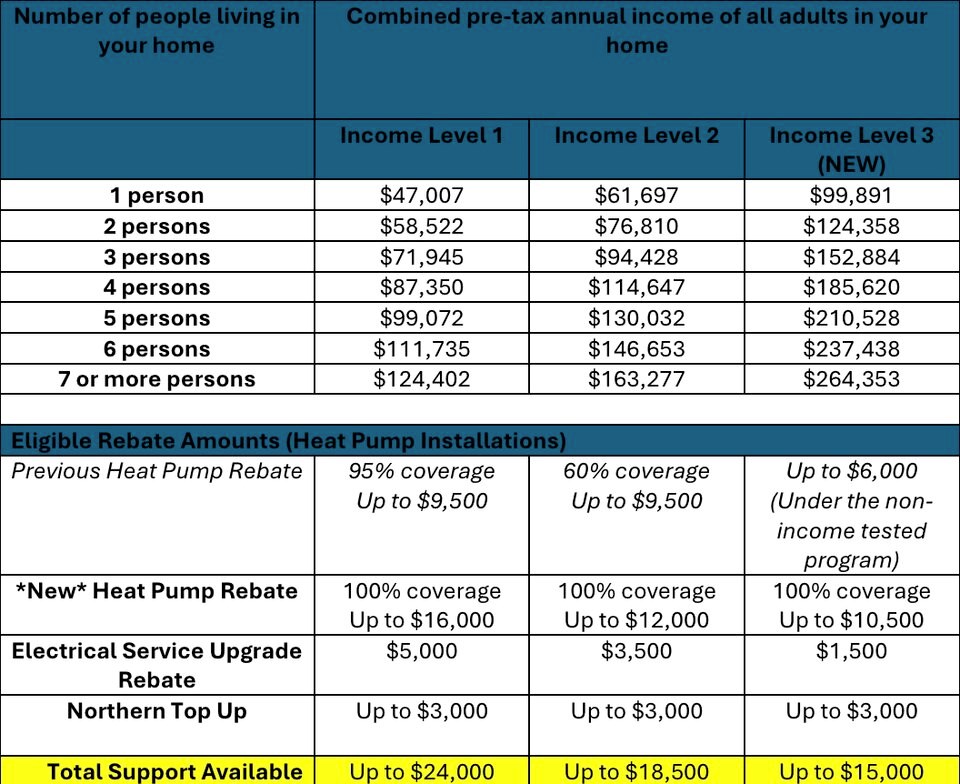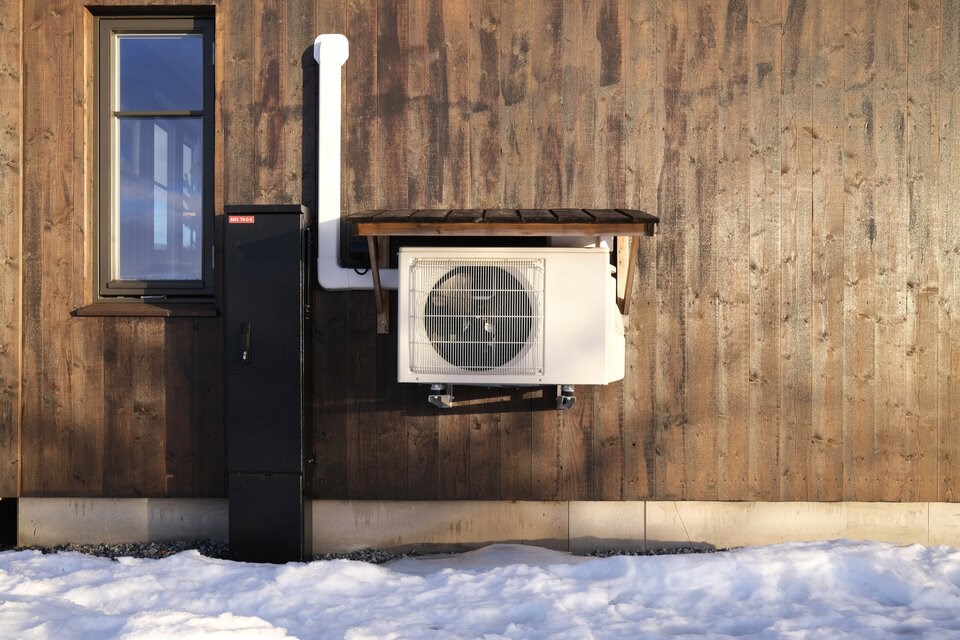Federal and provincial politicians gathered in Victoria Monday to announce a combined $253 million to help B.C. residents lower their energy costs through the purchase of heat pumps.
The money behind the Oil to Heat Pump Affordability Program represents a 70 per cent increase in green energy rebates and expands the program to middle-income households who want to replace their gas or oil furnace with a heat pump.
Qualifying British Columbians, said B.C.’s Minister of Energy, Mines and Low Carbon Innovation Josie Osbourne, could “essentially get a free heat pump through this program.”
“And then you also get the health benefits of a new cooling system in your home.”
Osbourne said the money will increase the maximum rebate amount for a new heat pump to $16,000, up from $9,500.
Those living in northern B.C. will be eligible for another $3,000 top-up to account for the cost of cold weather heat pump technology. Osbourne said successful applicants may also receive up to $5,000 for electrical service upgrades to install and run a heat pump.
Who is eligible?
Consider a low-income family in 100 Mile House wanting to transition from heating oil to a heat pump, said Osbourne. They could receive a total of $24,000. A renter in Victoria looking to replace an old natural gas furnace, meanwhile, could receive up to $12,000.
For a home to be eligible, it must be a year-round primary residence and at least one year old, Tania Venn, a spokesperson for the Ministry of Energy, Mines and Low Carbon Innovation, said in an email.
The property must also have an assessed value of at or under $1.23 million to meet the first two levels of income qualification. There is no property value cap for middle-income applicants, said Venn.

Homeowners or residents must have utility accounts in their own name. Primary heating for the home must include natural gas, propane, oil, electricity, wood or other solid fuels.
Eligible home types include single-family homes; a secondary suite with its own utility meter; a mobile home fixed to a foundation and connected to services; and a duplex, triplex, row home, or townhome in which every unit is hooked up to its own natural gas and/or electricity meter.
Renters are eligible but must have a landlord consent form to accompany their application.
No upfront costs
Applicants can pre-register starting in June to see if their income and home are eligible for the program. If successful, the rebate will directly apply to the cost of the upgrade, leaving households to pay for what’s left at the end.
Successful applicants who switch from heating their home with oil to a heat pump will also get a one-time $250 payment from the federal government. The installation of energy efficient windows, doors and insulation will continue under existing funding programs, according to the B.C. government.
In a written statement, Osbourne's ministry said the program would create 9,000 jobs and eliminate 40,000 tonnes of carbon equivalent emissions by 2030 — roughly equal to removing more than 12,000 passenger vehicles from the road.
B.C. Minister of Environment and Climate Change Strategy George Heyman said switching to clean heating sources, adding insulation, and installing better windows and doors will “save hundreds if not thousands of dollars.”
“It will make their homes more comfortable. It will enable them to withstand heat waves, as well as cold winters,” he said.
Announcement comes amid wildfire evacuations
Steven Guilbeault, federal Minister of Environment and Climate Change Canada, said the program comes as many Canadians are kept awake at night by both the cost of living and climate change.
Nearly 4,700 people remain under evacuation orders in the Fort Nelson area after strong westerly winds pushed the Parker Lake wildfire toward the community amid a multi-season drought.
“My heart goes out to the people of Fort Nelson, and other Canadians who are currently being evacuated because of forest fires,” said Guilbeault.
As the politicians stepped up to the mic, federal Minister of Energy and Natural Resources Jonathan Wilkinson said of the roughly 120 wildfires burning across Canada, about 50 were in B.C.
“We have been working around the clock to prepare for the worst,” said Wilkinson.
Minister takes political shot
Wilkinson then turned to the Liberal government’s climate plan and criticized Conservative Party Leader Pierre Poilievre playing down the threat from climate change.
“Poilievre does not either believe in climate change or does not think it is a very important thing. After last year's devastating fires. I think Canadians were perhaps assuming that he would reflect on his position,” said Wilkinson, also an MP for North Vancouver-Capilano.
“Mr. Poilievre’s plan for our environment is unfortunately to axe facts and science, and to simply let this planet burn.”
Canada’s next federal election is not scheduled until October 2025. A three-year supply-and-confidence agreement between the current Liberal government and NDP party is set to keep Prime Minister Justin Trudeau in power until that June.
A poll conducted by Nanos and CTV News earlier this year found 46 per cent of respondents would prefer having the next federal election in 2024.





